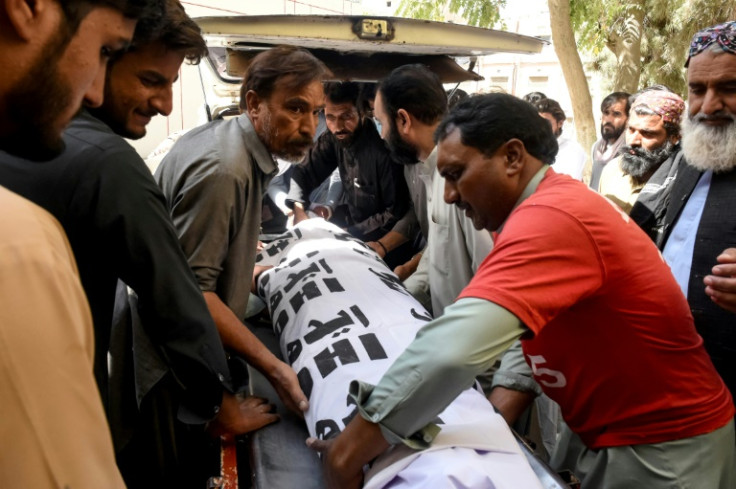Gunmen Kill 39 In 'Coordinated' Attacks In Southwest Pakistan

Separatist militants killed at least 39 people in "coordinated" attacks in southwestern Pakistan on Monday that largely targeted ethnic Punjabis, government officials said.
Pakistan's military said 10 soldiers were also killed, although did not make clear if they died in the original attacks or subsequent clearance operations.
Government officials reported deadly attacks in multiple districts targeting civilians in impoverished Balochistan, where security forces are battling sectarian, ethnic and separatist violence.
The Baloch Liberation Army (BLA), the most active militant separatist group in the province, claimed responsibility for an overnight operation in a statement sent to AFP.
Dozens of militants stopped vehicles travelling on a highway through Balochistan province and shot 23 people dead in one of the attacks, one of the worst shootings in the region in the past several years.
"We have confirmed 39 people killed in several coordinated attacks carried out by the BLA terrorists," Shahid Rind, a spokesman for the Balochistan provincial government, told AFP.
In Musakhail district, between 30 and 40 gunmen stopped 22 buses, vans and trucks one after the other on a highway connecting Punjab with Balochistan, senior official Najibullah Kakar said.
"Vehicles travelling to and from Punjab were inspected, and individuals from Punjab were identified and shot," he told AFP.
The BLA said in its statement it had launched an operation "on highways across Balochistan", claiming to have targeted only security personnel.
An earlier statement from the group published Monday just after midnight warned the Baloch public to stay away from the highways, adding that their "fight is against the occupying Pakistani military".
Militants also blew up a railway bridge in nearby Bolan district on a track that connects the province to Punjab and Sindh, with six dead bodies found nearby, said Javed Baloch, a senior government official in the district.
Ten people were also killed in Kalat district, including four paramilitary officers and one policeman, provincial government spokesman Rind said.
Nabi Baksh, from the Levies paramilitary force that works alongside the police, said gunmen had stormed a hotel and also targeted a village elder with perceived links to the security forces.
Balochistan is Pakistan's poorest province, despite an abundance of untapped natural resources, and lags behind the rest of the country in education, employment and economic development.
Baloch separatists have intensified attacks on Pakistanis from neighbouring provinces working in the region in recent years, as well as foreign energy firms they believe are exploiting the province's riches.
Punjabis are the largest of the six main ethnic groups in Pakistan and are perceived as dominating the ranks of the military, which is locked in a battle to quash Balochistan's armed factions.
Pakistan's military said in a statement on Monday that 21 militants had been killed "in clearance operations".
Kiyya Baloch, an analyst and former journalist tracking violence in Balochistan, said authorities are solely using force to suppress the two-decade conflict instead of seeking political solutions.
"This approach has led to increased retaliation from the youth and has caused the insurgency to gain momentum rather than diminish," he told AFP.
"Never before have so many coordinated attacks occurred simultaneously across multiple districts of Balochistan," he said.
The BLA mostly targets security forces and attacks on civilians often go unclaimed.
Eleven Punjabi labourers were killed when they were abducted from a bus in the city of Naushki in April, and six Punjabis working as barbers were shot in May.
Twin blasts in Balochistan killed 28 people on the eve of national elections in February and were claimed by the local chapter of the Islamic State group.
Protests led by ethnic Baloch are staged regularly in the province and accuse the authorities of a heavy-handed crackdown in their fight against militancy, including through mass arrests and detentions.
Pakistan has witnessed a surge in militant attacks since the Taliban government returned to power in neighbouring Afghanistan in 2021, mostly in the northwestern border province of Khyber Pakhtunkhwa, but also in southwestern Balochistan, which abuts Afghanistan and Iran.
© Copyright AFP 2024. All rights reserved.




















